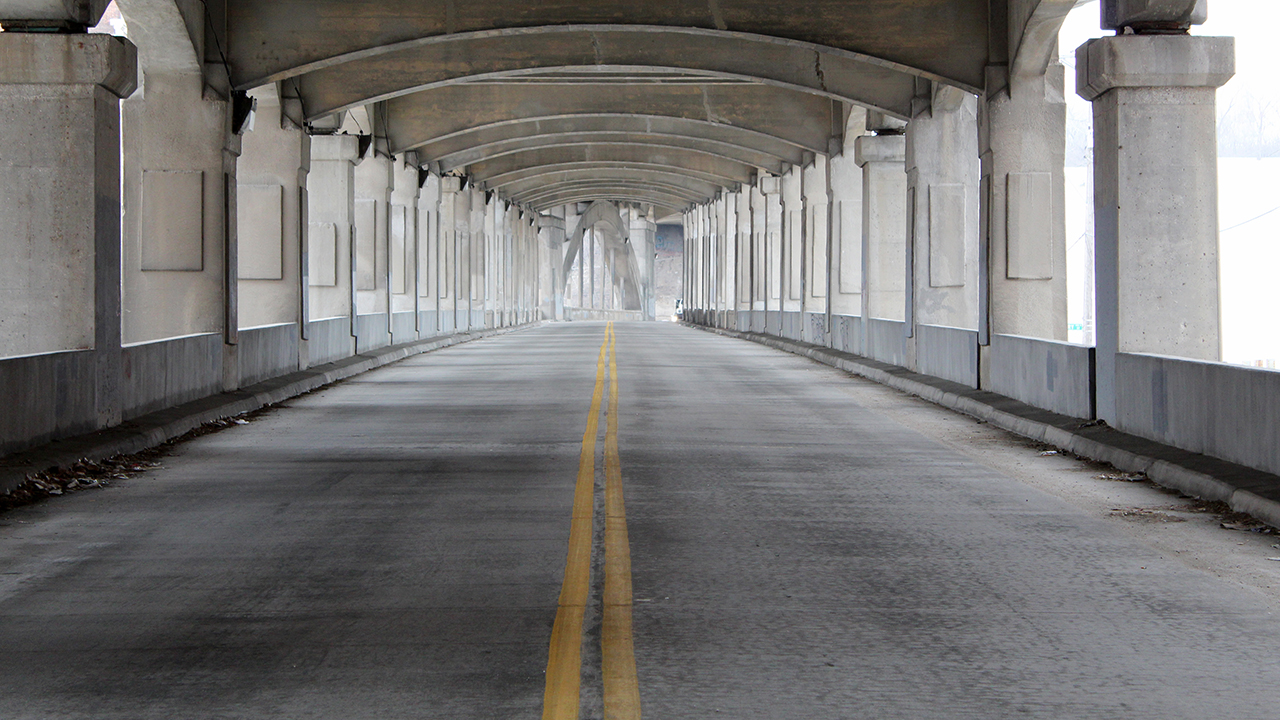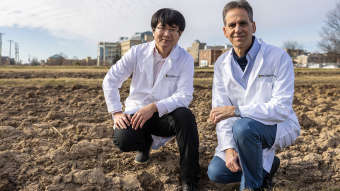Oct. 25, 2021
Traffic engineers could have a smarter way to identify asphalt problems and prioritize pavement projects, thanks to cutting-edge research from the University of Missouri College of Engineering. The team is training a machine to automatically classify types of cracks and potholes on the streets of Kansas City.
Historically, employees have had to rely on expensive equipment or people to manually view and identify cracks — an impractical task for the 6,000 lane miles maintained by the city.
“The goal is to use machine learning to do that,” said Yaw Adu-Gyamfi, an assistant professor in the College of Engineering’s Civil and Environmental Engineering (CEE) Department. “We’re currently in the process of training students to know the types of distresses so they can teach the machine learning model how to do it.”
While pavement can visibly exhibit dozens of types of deteriorations, some of those distresses can indicate underlying issues, said Bill Buttlar, the Glen Barton Chair in Flexible Pavement Technology in CEE.
“Each one of the distresses we identify on the surface can give us clues about subsurface deficiencies,” said Buttlar, who is also director of the Missouri Center for Transportation Innovation. “Sometimes we get clues that the problem is not with the new surfacing we just installed but a deeper foundational problem.”
The work should ultimately help engineers more efficiently maintain Kansas City’s roadways and prioritize repairs.
“The machine will allow us to go through all the data — every square inch of roadway — and aggregate the findings so humans can make high-level decisions based on the microlevel information,” Buttlar said.
In addition to the pavement crack project, Buttlar also plans to work with Kansas City to use recycled materials to repair roadways. Similar to work being done on Stadium Boulevard in Columbia, he envisions creating new types of asphalt with recycled pavement, old tires and plastic waste.
“The materials we’re looking at are new, and the machine learning techniques are new,” Buttlar said. “Missouri is one of the only states leading the way in this research and development.”




